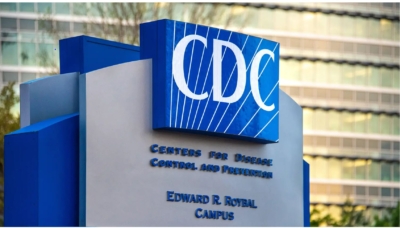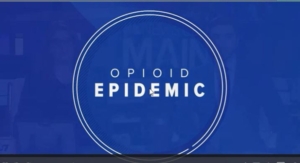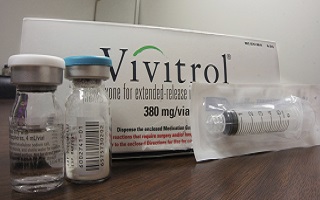More Paths to Successful Sobriety than Just Alcoholics Anonymous, Says New Study
February 26, 2018
ALTERNATIVE MUTUAL HELP GROUPS ARE VIABLE OPTIONS TO TRADITIONAL 12-STEP GROUPS
Emeryville, CA — People with an alcohol use disorder who participated in alternative mutual help groups had abstinence outcomes equivalent to those who participated in traditional 12-step groups at the same level, a new study from the Alcohol Research Group, a program of the Public Health Institute, found. This is the first longitudinal, comparative study of 12-step groups and their alternatives, including Women for Sobriety (WFS), LifeRing Secular Recovery (LifeRing), and SMART Recovery (SMART).
There has been little evidence to-date on the effectiveness of mutual help groups besides 12-step groups like Alcoholics Anonymous (AA). This study points to a range of viable options for people who seek sobriety support, and especially those who object to some of the underlying principles of 12-step groups. Results suggest that mutual help group involvement—measured as meeting attendance; having a regular or home group; having a close friend or sponsor in the group; leading, convening, or facilitating meetings; and doing volunteer or service work—offers equivalent benefits in relation to substance use and problems regardless of group choice.
“We know that participation in AA and other 12-step groups contributes to recovery from alcohol and drug problems, but until now, almost nothing has been known about the efficacy of alternatives to the 12-step approach,” said lead author Sarah E. Zemore, who is Senior Scientist and Center Associate Director at the Alcohol Research Group. “Our findings showed that participation in three major, secular alternatives to 12-step groups yielded the same benefits for recovery from an alcohol use disorder as did participation in 12-step groups—even though the philosophies of these alternatives are very different from AA’s philosophy. This is exciting news, because it suggests that there are several good choices for individuals seeking a recovery support group.”
Further results indicated that having an alcohol recovery goal of lifetime abstinence was a powerful predictor of better substance use outcomes, regardless of the individual’s primary mutual help group. Those with a goal of lifetime total abstinence had 5.2 times the odds of alcohol abstinence vs. those with any other goal. This suggests that, in addition to making referrals to multiple mutual help groups, practitioners should encourage clients’ commitment to lifetime abstinence and develop a care plan that supports this goal.
Zemore and her study team believe their findings help address a gap in the recovery literature by providing initial support for mutual help group options that may align more closely with individual core values and needs.
“I hope that our results increase awareness of and referral to WFS, LifeRing, and SMART, so that more people can find a group that works for them, stick with that group, and ultimately recover,” Zemore added.
The study, called the Peer Alternatives in Addiction (PAL) Study, collected longitudinal data from current participants of 12-step groups, WFS, LifeRing, and SMART. Study respondents were surveyed three times over a 12-month period beginning with 651 baseline respondents. Collected measures included past-30-day meeting attendance and other indicators of mutual help group involvement, alcohol and drug use and severity, alcohol recovery goal, and other clinical and demographic variables.
###
Zemore, S.E., Liu, C., Mericle, A., Hemberg, J., Kaskutas, L.A. (2018).A longitudinal study of the comparative efficacy of Women for Sobriety, LifeRing, SMART Recovery, and 12-step groups for those with AUD. Journal of Substance Abuse Treatment: http://www.journalofsubstanceabusetreatment.com/article/S0740-5472(17)30490-7/abstract
For more information on the PAL Study, see: Zemore, S.E., Kaskutas, L.A., Mericle, A., Hemberg, J. (2016). Comparison of 12-step groups to mutual help alternatives for AUD in a large, national study: differences in membership characteristics and Group participation, cohesion, and satisfaction., 73, 16-26. Journal of Substance Abuse Treatment.
Research reported in this press release was supported by the U.S. National Institute on Alcohol Abuse and Alcoholism (NIAAA) of the National Institutes of Health under award number R21AA022747. The content is solely the responsibility of the authors and does not necessarily represent the official views of NIAAA or the National Institutes of Health.
If you are interested in arranging an interview with Sarah E. Zemore, PhD, please contact Diane Schmidt, Communications Specialist at the Alcohol Research Group at (510) 898- 5819 or dschmidt@arg.org.
About the Alcohol Research Group: The Alcohol Research Group (ARG) is a program of the Public Health Institute. ARG is dedicated to improving public health through deepening our understanding of and developing preventive approaches to the implications of alcohol and other drug use.
About the Public Health Institute: The Public Health Institute, an independent nonprofit organization, is dedicated to promoting health, well-being and quality of life for people throughout California, across the nation and around the world.
Share on Twitter: New @ARGphi study, via @PHIdotorg: More Paths to Successful Sobriety than Just Alcoholics Anonymous: bit.ly/2t5N6s6 #Alcohol #PublicHealth
By Joe Gerstein, MD, FACP

Dr. Joe Gerstein
We welcome the first scientific research showing that SMART Recovery and other mutual support groups can help people overcome severe cases of alcoholism – or alcohol use disorder (AUD) – as effectively as Alcoholics Anonymous. This finding is significant because the study tracked the same people using these groups over time, a 12-month period, making it a longitudinal analysis, and all the participants have an AUD.
These results are not surprising. They reaffirm scientifically what we know firsthand, having seen countless people recover from substance use disorders over the many years we’ve existed – as long as 43 years for Women for Sobriety and nearly a quarter century for SMART.
This research sends a powerful message to counselors, clinicians, physicians and public health advocates that people suffering from serious addictions can find help in many different groups, meetings and programs.
SMART Recovery alone now has 2,700 weekly meetings in 24 countries on all six major continents. These include 1,780 in North America, 630 in Europe and 280 in the Pacific Rim. People anywhere can attend online meetings hosted by SMART, LifeRing and Women for Sobriety.
Also noteworthy is that all three groups emphasize self-empowerment – helping people find and wield the power within themselves to sustain recovery as long as it takes to lead balanced and fulfilling lives free from the destructive effects of problematic addictive behavior.
We strongly encourage more addiction scientists to continue exploring the many pathways to recovery. We need to know in more detail how different groups support recovery. Science shows that simply attending support group meetings is a significant factor. We need research to help counselors match clients to certain group features, such as a science-based orientation or SMART’s 4-Point Program®.
Of course, we also need more studies with larger and randomized samples with control groups where possible to gain more definitive proof.
SMART leaders and our global network of more than 5,000 devoted volunteers, including professionals and trained meeting facilitators, stand ready to collaborate with scientific investigators in every way possible to advance and accelerate research into all recovery support models.







Leave A Comment